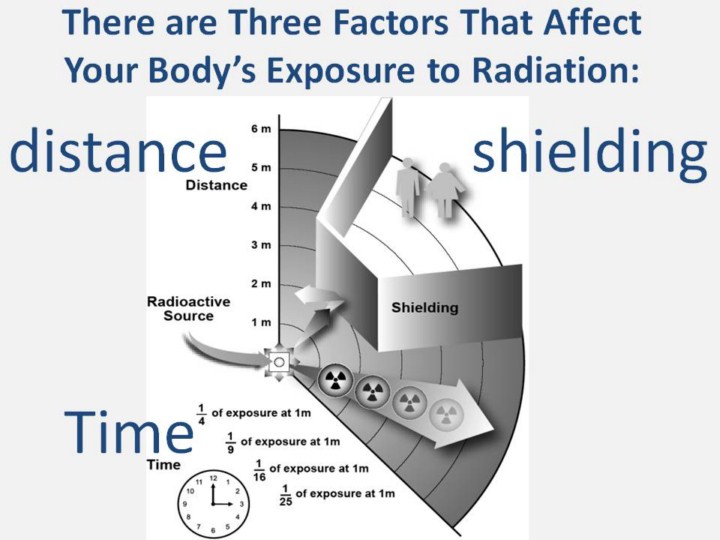| front |1 |2 |3 |4 |5 |6 |7 |8 |9 |10 |11 |12 |13 |14 |15 |16 |17 |18 |19 |20 |21 |22 |23 |24 |25 |26 |27 |28 |29 |30 |31 |32 |33 |34 |35|36 |37 |38 |39 |40 |41 |42 |43 |44 |45 |46 |47 |48 |49 |50 |51 |52 |53 |54 |55|56 |review |
 |
It is important to distinguish between direct and indirect exposure to radiation and exposure through radiological contamination. A person exposed to a medical X ray receives direct radiation, but the body is not radioactively contaminated. Radioactive contamination occurs when radioactive particles are deposited on a person's skin and can be absorbed through the skin or by inhalation or ingestion. These considerations form the basis of emergency planning as well as the protective actions taken to ensure the health and safety of the public after an accidental radiological release. What can I do to minimize radiation exposure? There are three factors that affect your body’s exposure to radiation: time, distance, and shielding. Time - All radioactivity loses its strength with time: some of it within days or less, some of it over years. Limiting the time spent near the source of radiation reduces the amount of radiation exposure you will receive. Following an accident, local authorities will monitor any release of radiation and determine the level of protective actions and when the threat has passed. Distance - The more distance between you and the source of the radiation, the less radiation you will receive. In the most serious nuclear power plant accident, local officials will likely call for an evacuation, thereby increasing the distance between you and the radiation. Shielding - The heavy, dense materials between you and the source of the radiation will provide shielding from the radiation and reduce exposure to the radiation. This is why local officials may advise you to remain indoors if an accident occurs. Buildings protect from radioactive fallout by isolation (like an umbrella “shields” us from rain) and ensure distance between you and the radioactive materials. Sources: Federal Emergency Management Agency Environmental Protection Agency National Council on Radiation Protection and Measurements |